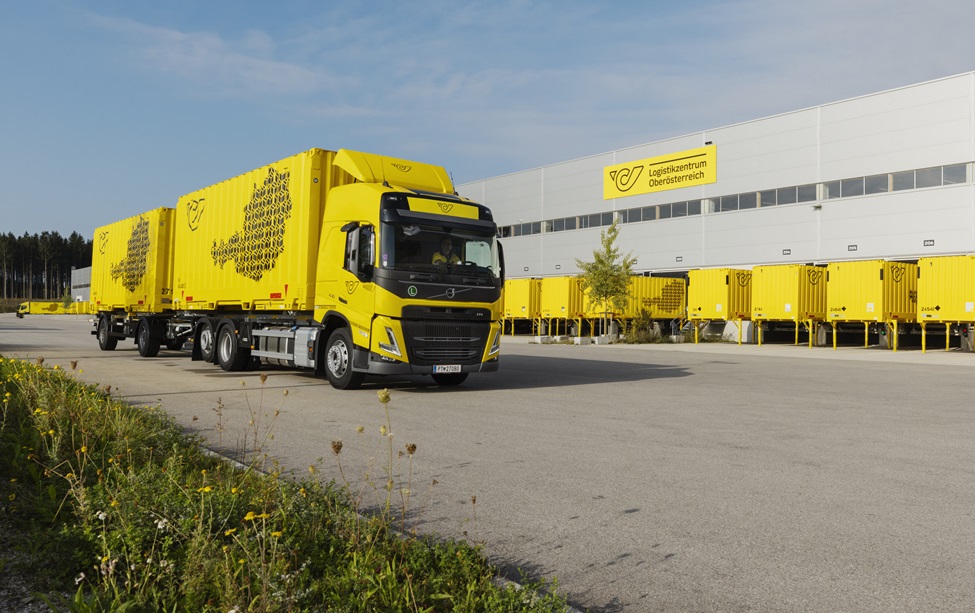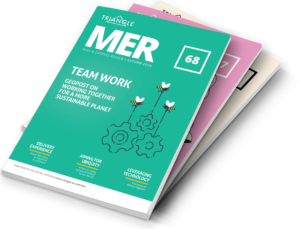
Austrian Post: We are ringing in the next phase of the yellow-green future

Following a successful test operation in the previous year, Austrian Post will completely convert its truck fleet from diesel to hydrotreated vegetable oils (HVO) in the first half of 2024.
This is a renewable fuel that can be produced from waste, fats, vegetable residues and vegetable oils. According to the manufacturer, up to 90 percent of CO2 emissions can be saved over the product life cycle compared to fossil diesel. With an annual consumption of around six million litres of diesel, Austrian Post thus has a great deal of leverage to reduce emissions in heavy-duty transport. “With the use of HVO, we are ringing in the next phase of the yellow-green future. After the successful test operation, we have decided to refuel all our 180 trucks with this renewable fuel in the first half of 2024. HVO is an important bridging technology and an enormous lever with which we can save several thousand tonnes of CO2 per year,” explains Peter Umundum, Director of the Board of Management for Parcel & Logistics at Österreichische Post AG. HVO can be used in modern diesel engines without any technical modifications and has already been approved for use by all truck manufacturers in the Austrian Post fleet – Iveco, MAN, Volvo – which enables rapid implementation. Since the beginning of the year, the first 60 postal trucks have already been refuelled with HVO, and this figure is expected to rise to around 120 by the end of March. By the end of the first half of the year, the entire fleet of 180 trucks is expected to be fully converted to HVO. In the ramp-up phase in 2024, around four million liters of diesel will be replaced by HVO, and in full operation it will be around six million liters of diesel per year. The HVO fuel is procured from the filling station partners Eni, MMM, OMV and Turmöl. Thanks to long-term supply contracts and a link to the diesel price, Austrian Post does not anticipate any significant additional costs as a result of the changeover. The HVO fuel used by Austrian Post is subject to the EU Renewable Energy Directive (RED II). It aims to ensure that biofuels do not have a negative impact on food production, the environment or social sustainability. SUCCESSFUL TEST OPERATIONAustrian Post was able to record the test operation between July and September 2023 in the two metropolitan areas of Vienna and Graz as a complete success. The trucks were used on their daily postal routes between logistics centres, delivery bases and post offices, transporting parcels, direct mail, letters and print media. Important experience has been gained in day-to-day use: the trucks do not consume more fuel, and the handling and performance are the same as when running on diesel. The refueling process is simple and there is no smell of vegetable oils or fats. OUTLOOK: ELECTRIC TRUCKS AND HYDROGEN IN THE STARTING BLOCKSOn the road to emission-free heavy-duty transport, Austrian Post wants to put further future technologies on the roads and test them as quickly as possible. At the end of the first half of the year, two e-trucks will be put into operation, which will then commute between the logistics center in Vienna-Inzersdorf and Vienna-Schwechat Airport. Two fast-charging stations will be set up on the site of the logistics centre in order to be able to send the vehicles back on the road in the shortest possible time. The situation with hydrogen trucks is somewhat more challenging. There are currently only a few truck models on the market in small series, and the availability of green hydrogen – produced with renewable energies – is still very limited in Austria. Depending on availability, Austrian Post aims to test a hydrogen truck in 2024 or 2025.












